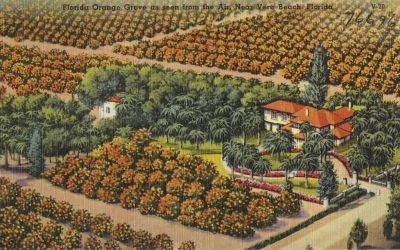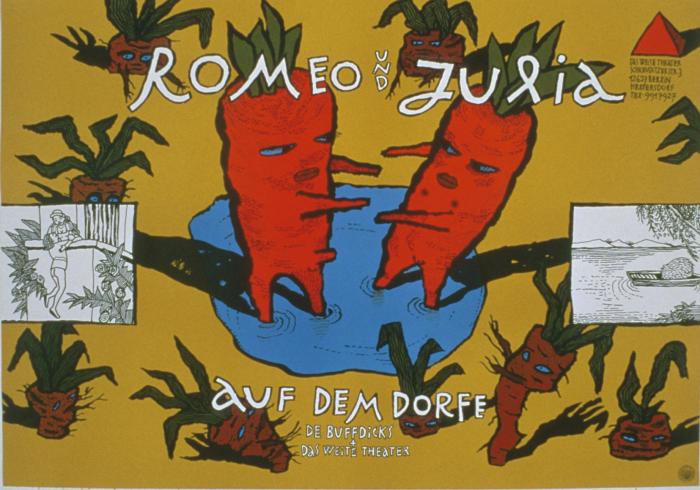ORCHESTRA
Florida orange plantations cultivated an overlooked English composer

Florida orange grove as seen from the air
Frederick Delius (1862–1934) was one of the most distinctive composers in the revival of English music at the end of the 19th century. The son of a German manufacturer, Delius learned to play both violin and piano proficiently before he reached his teens.
After attending Bradford Grammar School, he spent two years studying at the International College near London and then continued for some years as an apprentice in his father's business. These were characterized by a growing frustration with business life, and in 1884, Delius persuaded his father to let him try his hand at cultivating oranges in Florida.
This turned out to be a major influence on his life and musical language. Sitting on his porch in the sultry Florida twilight surrounded by the soft scent of oranges, he would hear the traditional worker songs. He also studied music theory with a local organist named Thomas Ward before his father finally let him study music properly.
In 1886 Delius left Florida for Leipzig Conservatorium and became a friend of the Norwegian composer Edvard Grieg.
After Leipzig, Delius went to Paris where he started working on several operas. But he couldn't really get to hear how his orchestral music sounded since he was still relatively unknown, so he had to wait until 1897 to hear his own music performed by a full orchestra.

His most known opera A Village Romeo and Juliet is surely a musical masterpiece based on the short story Romeo und Julia auf dem Dorfe by the Swiss author Gottfried Keller.
While the opera has rarely been staged, the orchestral interlude The Walk to the Paradise Garden is heard separately in concerts and has been recorded many times.
Listen to The Walk to the Paradise Garden interlude in performance by Sir John Barbirolli with London Symphony Orchestra:
During the last twenty years of his life, Delius gradually succumbed to illness, suffering from syphilis.
He eventually became blind and paralyzed, confined to a wheelchair. His mind was completely fine but he couldn't compose with his wasted body.
But, in one of the most touching stories in music history, help came. The young Eric Fenby, a fan of Delius's, offered to serve as his aid and help him compose. The pair established a workable relationship, and Delius composed the last of his output.



